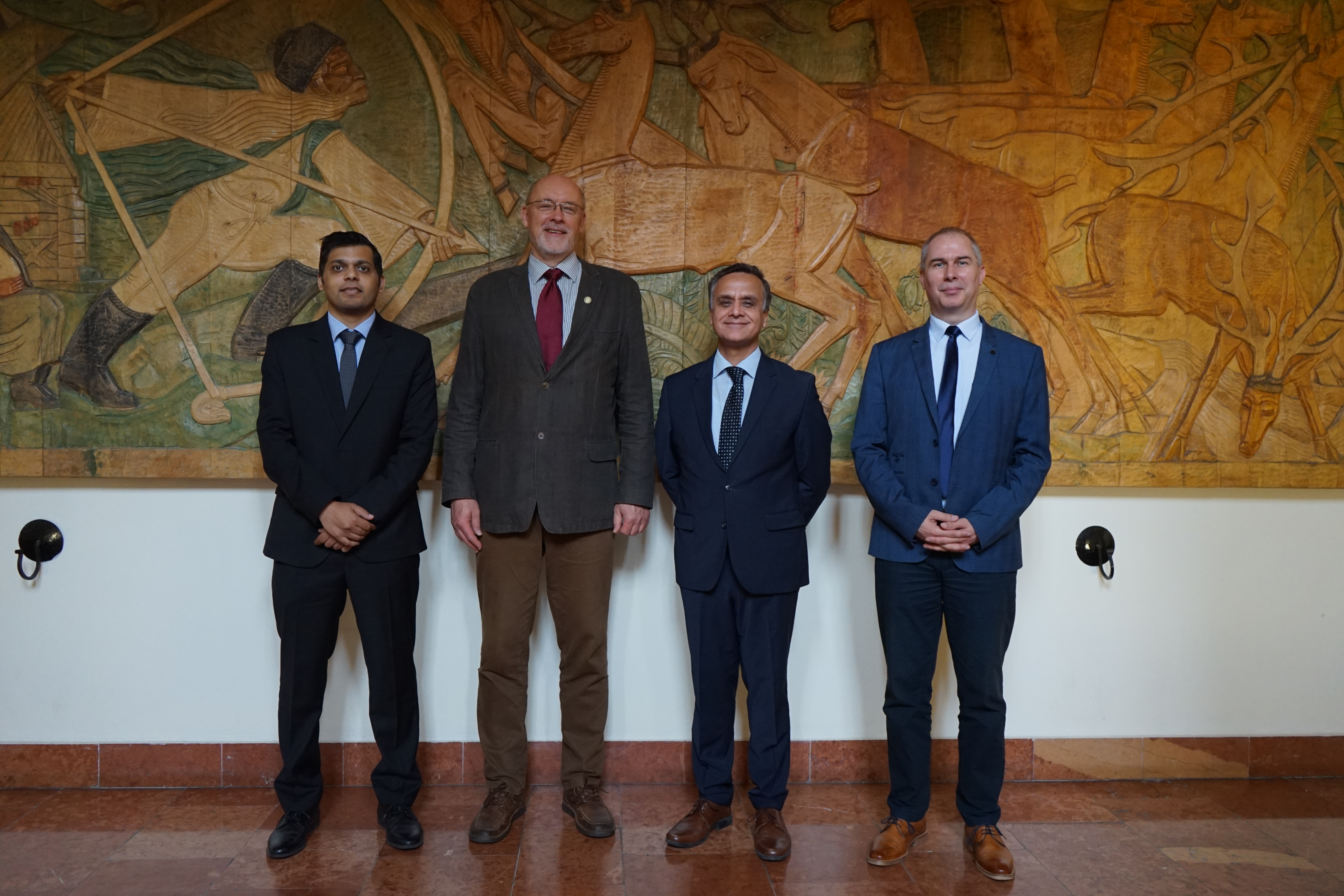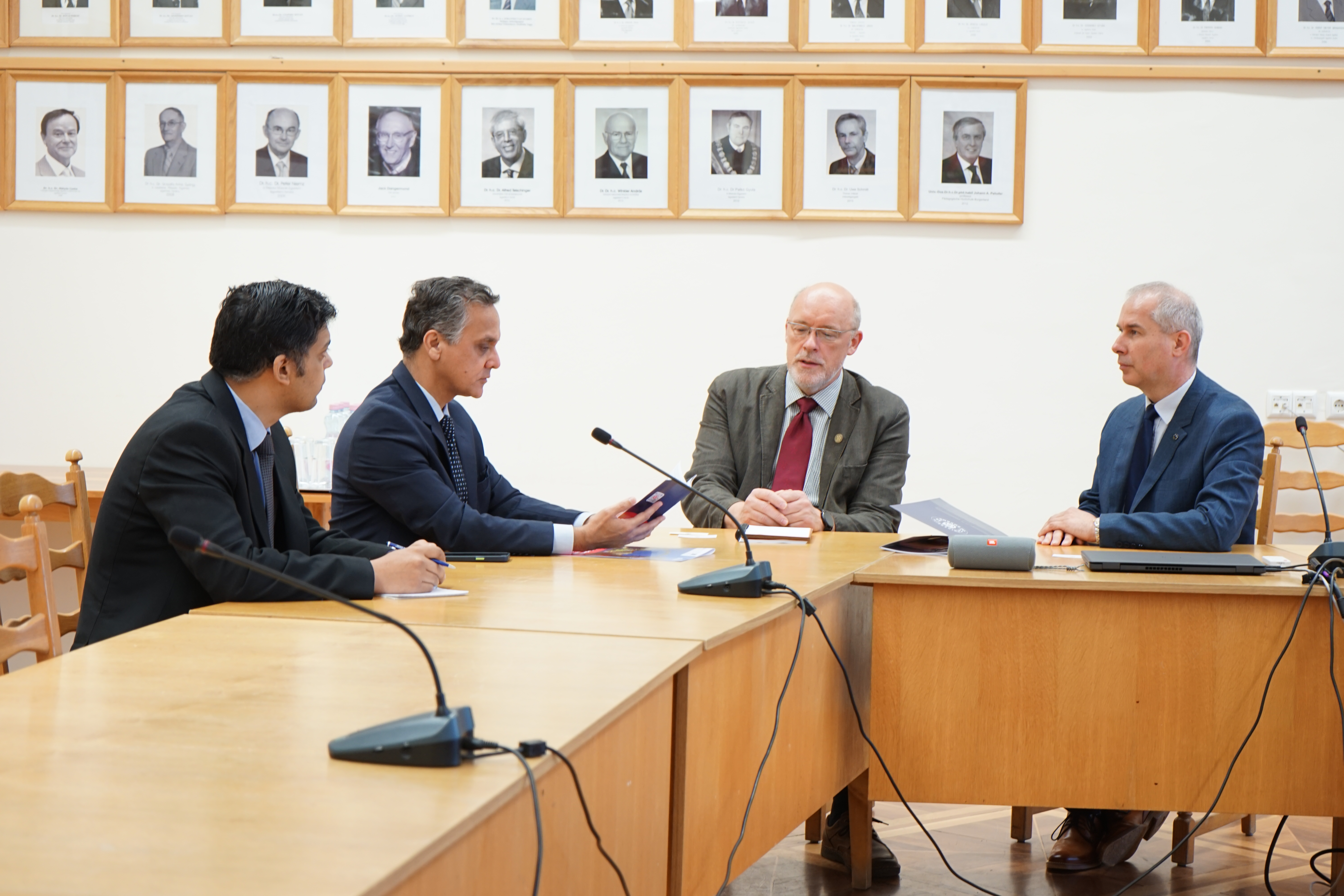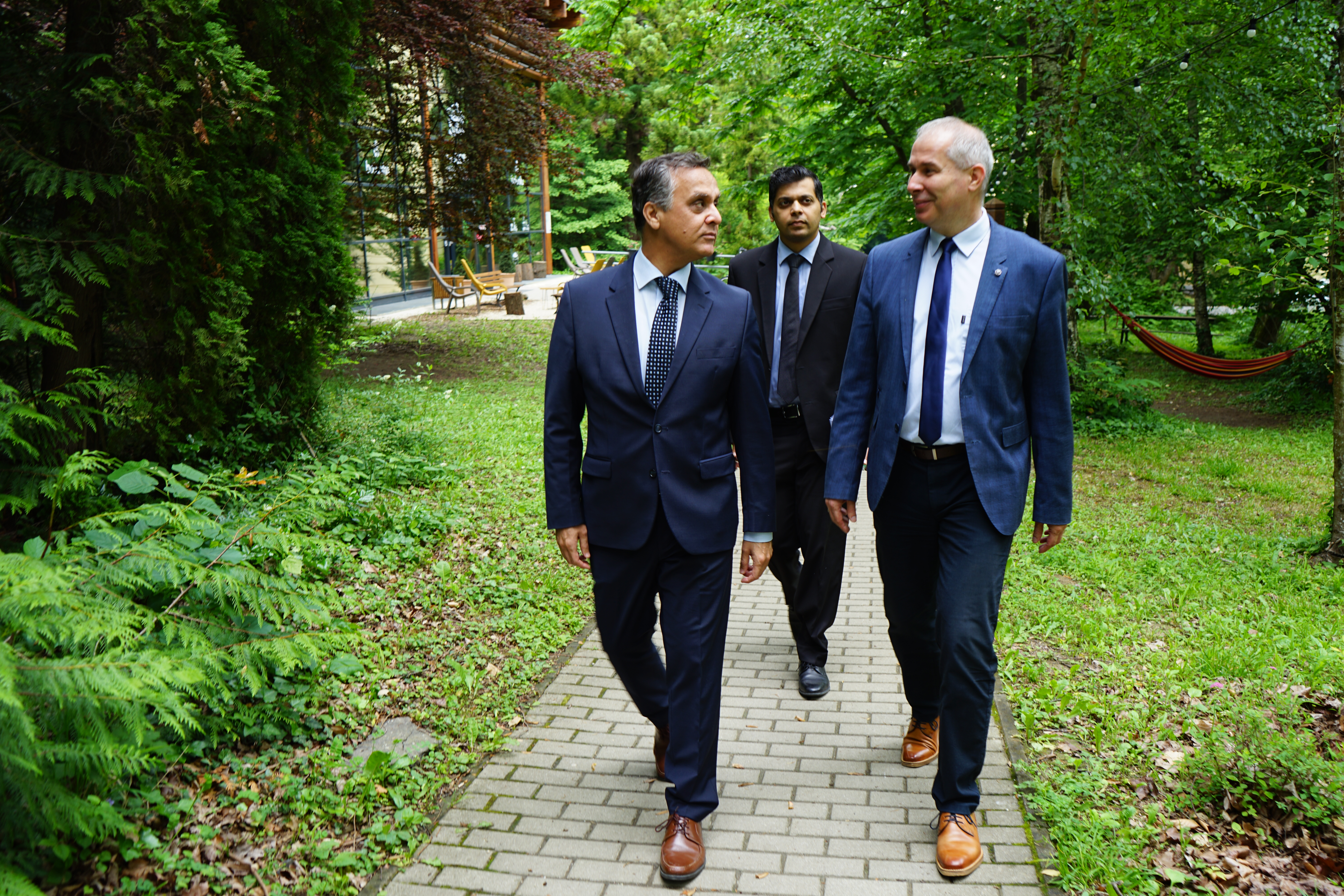The University of Sopron welcomed H.E. Asif Hussain Memon, the Pakistani Ambassador to Hungary, and Mr. Mirza Sameer Baig, Deputy Head of Mission on Tuesday, May 21st, 2024.
The visit included a luncheon where discussions centred on potential collaborations between the University of Sopron, particularly its Faculty of Forestry, and universities in Pakistan. The conversation also highlighted the Stipendium Hungaricum Scholarship programme, a Hungarian government scholarship opportunity for international students.
During their visit, H.E. Ambassador Memon and Mr. Baig had the opportunity to meet with Prof. Dr. Ferenc Lakatos, Vice Rector, and Dr. habil. Zoltán Szabó, Director of International Affairs at the University of Sopron. This meeting suggests a growing interest in academic exchange between Hungary and Pakistan.
The Faculty of Forestry at the University of Sopron, known for its excellence in forestry education, could be a valuable partner for Pakistani universities. The Stipendium Hungaricum Scholarship program could further strengthen these ties by providing Pakistani students with the opportunity to study in Hungary.
This visit signifies a positive step towards building stronger academic ties between Hungary and Pakistan.
Related content
- Breakthrough in AI-Based Education: The University of Sopron Joins the International Elite
- Invitation to AI Webinar
- University of Sopron International Students Shine Bright at End-of-Semester Talent Show!
- University of Sopron Strengthens Ties with Erasmus Student Network Hungary at National Assembly
- Termporary Change in Central Library Open Hours
- The University of Sopron Showcases Educational Opportunities in South Korea
- Regular Opening Hours at the Central Library from 1 December
- University of Sopron Among Hungary’s Top Institutions and Near the World’s Top 500!
- Invitation to the Presentation of OAPEN’s Open Access Book Platforms
- Weekend in Nature with SH Mentors











